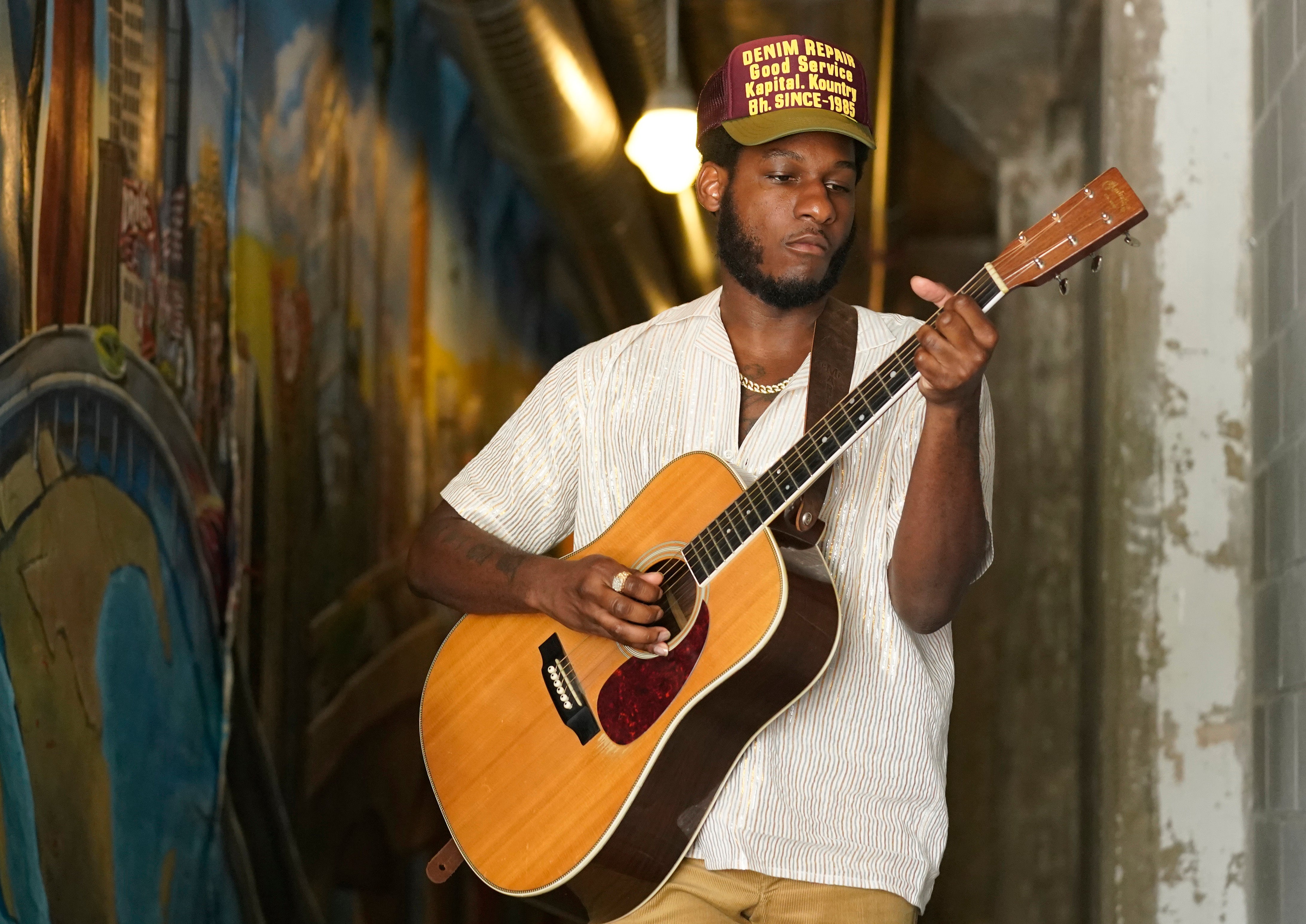Leon Bridges shares his evolution to 'Gold-Digger Sounds'
Grammy-winning artist Leon Bridges discusses his musical and personal evolution as he releases his third studio album, the “Gold-Diggers Sound.”

Your support helps us to tell the story
From reproductive rights to climate change to Big Tech, The Independent is on the ground when the story is developing. Whether it's investigating the financials of Elon Musk's pro-Trump PAC or producing our latest documentary, 'The A Word', which shines a light on the American women fighting for reproductive rights, we know how important it is to parse out the facts from the messaging.
At such a critical moment in US history, we need reporters on the ground. Your donation allows us to keep sending journalists to speak to both sides of the story.
The Independent is trusted by Americans across the entire political spectrum. And unlike many other quality news outlets, we choose not to lock Americans out of our reporting and analysis with paywalls. We believe quality journalism should be available to everyone, paid for by those who can afford it.
Your support makes all the difference.“Gold-Diggers Sound” is an apropos name for the third studio album of an artist who struck it rich six years ago with his debut LP.
Leon Bridges’ music quickly earned him recognition. “Coming Home” was nominated for Best R&B album at the 2015 Grammys Three years later, his sophomore album’s “Bet Ain’t Worth the Hand” landed him his first Grammy win.
The fame that came next was an adjustment for Bridges. He lost his anonymity and felt isolated — an experience he details in the song “Blue Mesas.”
“When you take an insecure person and put them in a limelight, it’s a little hard to deal with that sometimes, you know?” he said in an interview this week.
The story behind the album’s name, though, is literal — Gold-Diggers is the name of the hotel where Bridges wrote and recorded his new material.
“I have been working and kind of digging and searching for the right sound over the course of two years,” Bridges said.
He wanted an R&B album “grounded with organic elements” and Gold-Diggers was “the perfect place to house all of this music.”
Bridges held a Grammys party there in 2019 and after connecting with the space, decided he wanted the album experience to be immersive — he started a residency at the hotel, brought in collaborators and got to work.
As the musicians would jam and improvise, he sang melodies and phrases over top, gradually shaping each song.
For some, he had a specific artist in mind, like Sade when he was writing “Magnolias.” But for most, he says he was just “doing me.”
“I didn’t necessarily have an idea of what the concept would be on some of them,” said Bridges.
But he knew he didn’t want to replicate the sound of his last two albums. He says it was a conscious decision to stay unpredictable. He calls growth and change inevitable.
“With each album, I want to continue reinventing myself as an artist,” he said.
In “Coming Home,” the influences of gospel music are pervasive. In “Good Thing,” Bridges leans on a more retro sound.
“When I first came in the game with ‘Coming Home,’ I was immediately pigeonholed and placed in a box,” says Bridges.
The shift away from spiritual tracks correlated with his relationship with religion. While songs like “River” from his first album are rooted in Christian symbolism, songs from “Gold-Diggers Sound,” like “Sho Nuff” are playfully sensual.
“I was apprehensive at that time, writing those songs out of fear of not being accepted,” said Bridges. “Currently, like, I don’t really know what my relationship with God is anymore and I think there’s still some of those gospel undertones in the music, but it’s more so liberating to just make the music that I want.”
Breaking out of the box is something he knows may have alienated some fans. But for any of the fans he lost, there were plenty he gained.
“Throughout my career, I’ve always been scrutinized for my music being essentially whitewashed,” he said. “But I can see via social media that there’s more Black people engaging in and supporting the music.”
Bridges says it was initially “off putting” for him to hear criticism of his music, but he doesn’t think about it anymore. Rap and hip-hop culture are so inundated in the mainstream that even a Young Thug concert can have predominately white fans, he points out.
He believes artists like Lil Nas X and Lizzo are redefining the boundaries of Black art that is accepted within the Black community.
“You know, guys like Daniel Caesar, he was kind of on the forefront of that, and it’s really beautiful to see artists who don’t really fit the mold of what’s popular being embraced,” he said.
As for Bridges, he’s content in the direction he’s heading and looking forward to the part of the process he enjoys the most — performing.
“Writing is such a tedious and challenging thing,” he said. “The last step of getting on the stage and witnessing this, like, collective effervescence in the crowd and putting out the energy and then getting it back, it’s a beautiful thing.”